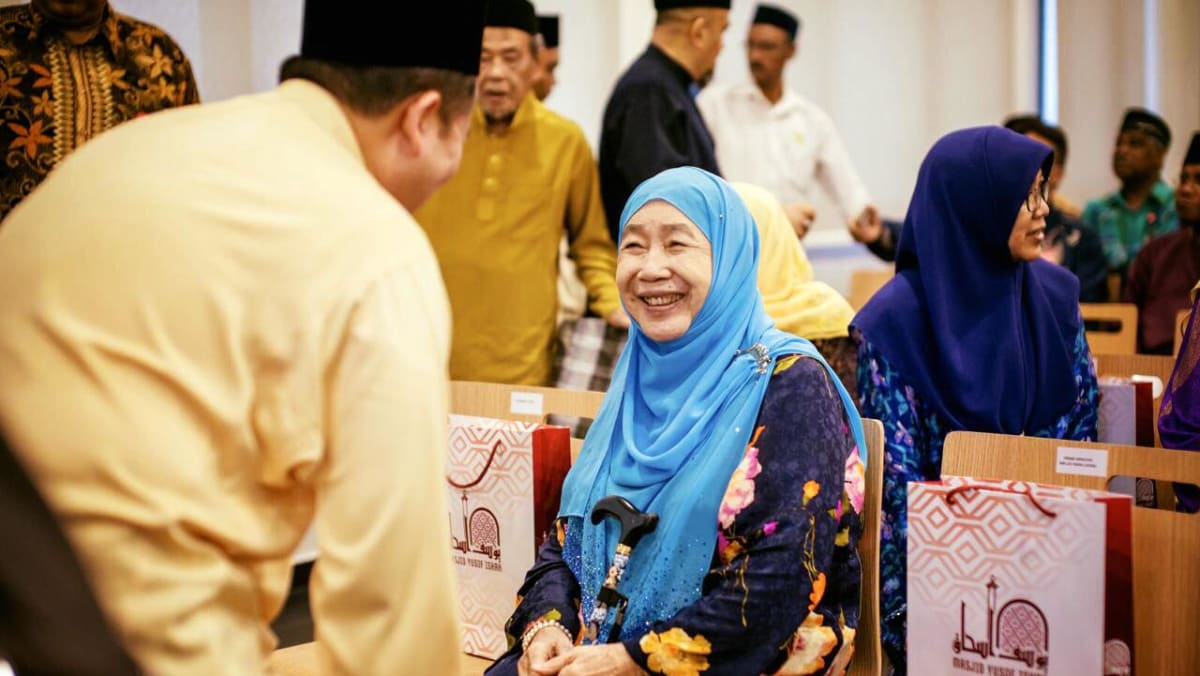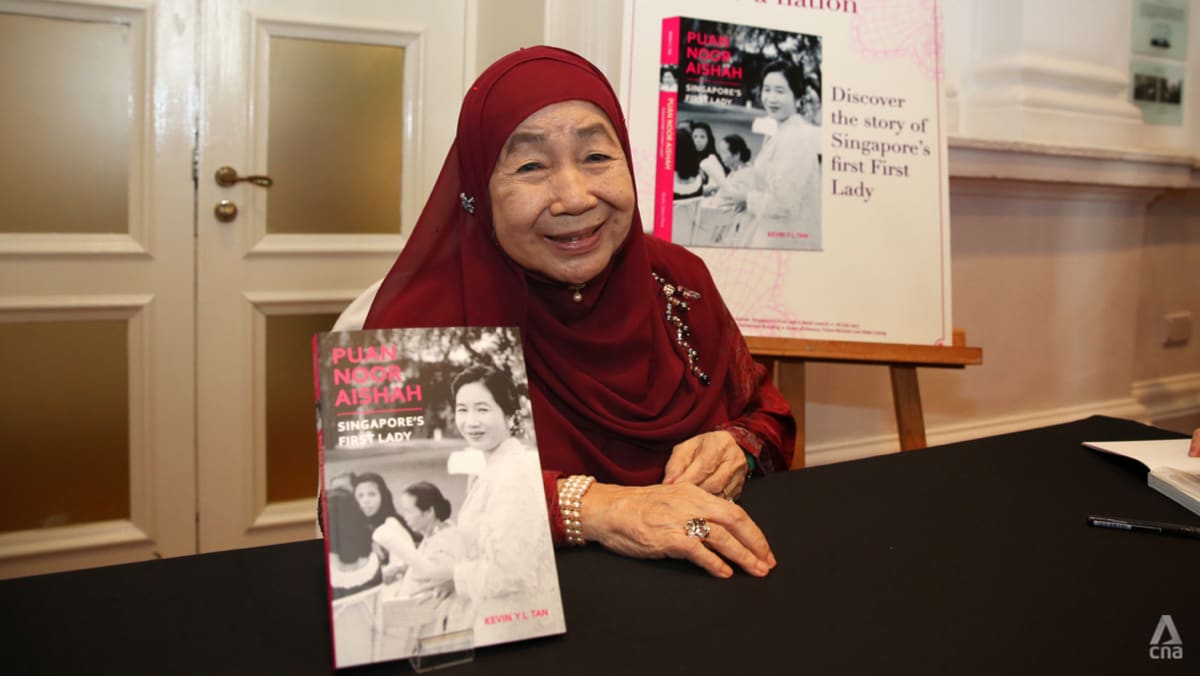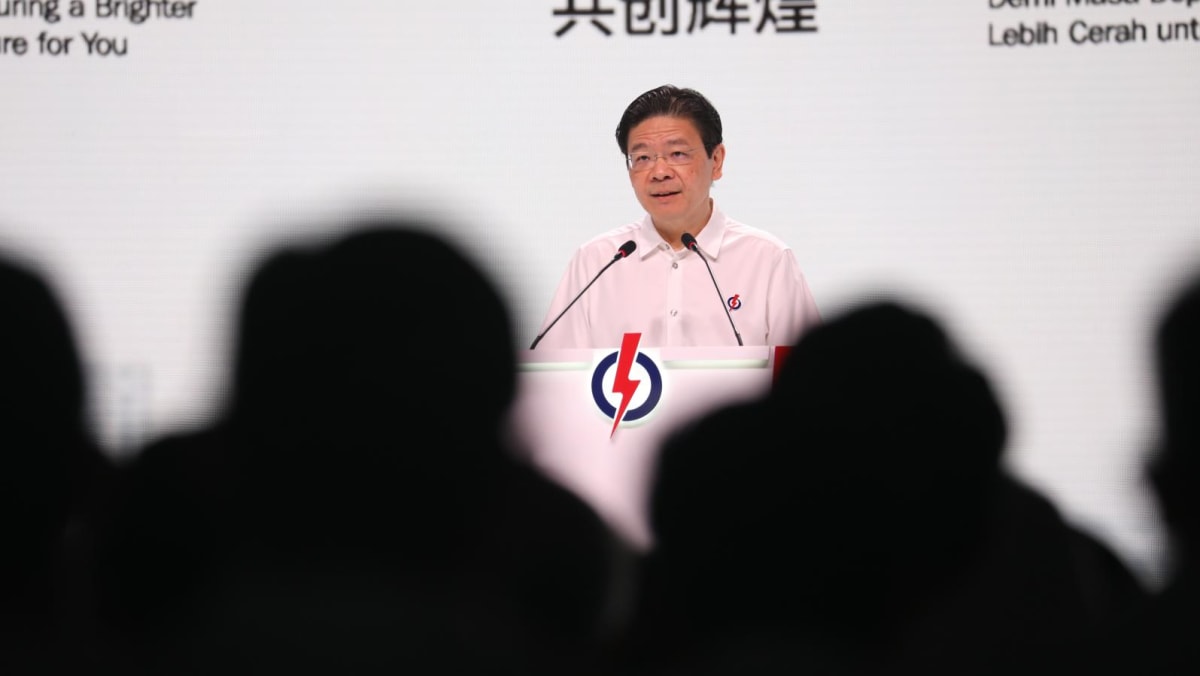SINGAPORE: If Singapore has to choose sides, it will choose the side of principles that uphold an integrated global economic and security order, underpinned by law and sovereignty, said Singapore's Defence Minister Chan Chun Sing on Sunday (Jun 1).
This way, "states, big and small, have a fair chance to compete and improve the lives of their people through trade and not war", Mr Chan said during the sixth and final plenary session at the Shangri-La Dialogue, Asia's top defence summit.
Two other defence ministers - Papua New Guinea's Billy Joseph and Sweden's Pal Jonson - were also part of the session, titled "Enhancing security cooperation for a stable Asia-Pacific".
In his speech, Mr Chan referred to Southeast Asia’s engagement of the United States, China and other countries as a "geostrategic necessity".
"For Singapore, we believe that taking sides, regardless of issues and context, breeds irrelevance; and if one is irrelevant, it will almost certainly require (one) to take sides," said Mr Chan, who is attending his first Shangri-La Dialogue as defence minister.
He added: "If we have to choose sides, may we choose the side of principles - principles that uphold a global order where we do not descend into the law of the jungle, where the mighty do what they wish and the weak suffer what they must."
All states have agency and responsibilities to uphold the global economic and security order for a "common benefit".
Singapore is thus committed to work with like-minded partners and with a "web of bilateral, plurilateral, multilateral networks for the common good," said Mr Chan.
REWRITING HISTORY
During the session, Mr Chan was asked whether choosing the side of principles meant not choosing a side.
In response, he said Singapore does not base its positions on who the key players are in a given issue. "Instead, we look at every situation very carefully to decide what are the principles that are at stake."
He cited the war in Ukraine as an example, saying the conflict involves different levels of interest.
Some are concerned because the war disrupted global supply chains and economic security, while for others, the core issue is sovereignty.
"These are all valid concerns. But if I may suggest, the highest order of concern for all of us should be the principles of how we conduct international relationships," said Mr Chan.
"If one country, whether big or small, can march into another country on the basis that they will want to right the wrongs of history, then I think we live in a very dangerous world.
"And certainly for Singapore, because we have only been independent for the last 60 years," said the defence minister.
Should this attempt to rewrite history happen, it would leave "very little room" for small countries to be who they want to be, he added.
Singapore adheres to a set of principles that have contributed to and underpinned the country's survival and success, and when assessing any particular issue, it looks "very carefully" from this perspective, Mr Chan said.
He noted that Singapore has, at times, taken positions not aligned with those of major powers: "Yes, certainly so."
"There have been instances in history where superpowers went in to another country, a smaller country, and we objected," said Mr Chan.
"There have been instances whereby the rules on the freedom of navigation have been violated, and we have objected."
He also noted that people have asked about fears of being penalised by the superpowers for not supporting their positions.
"Of course, there are risks. But there is a greater risk that when principles are not upheld by countries, big and small, we live in a more dangerous world."
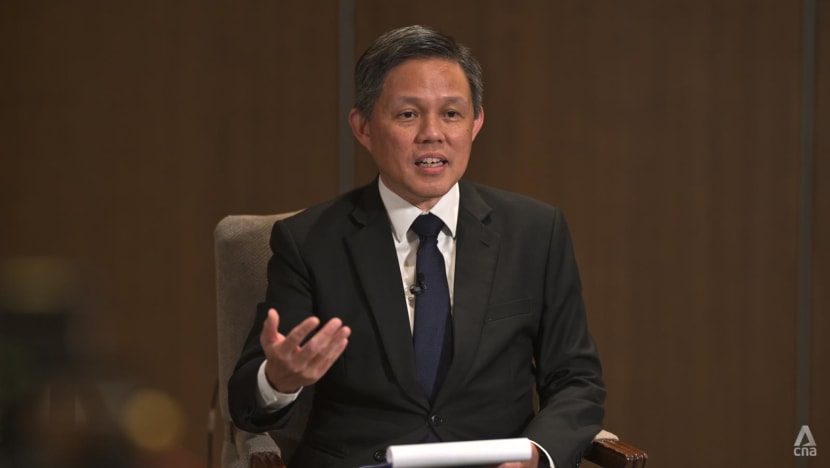 Singapore Minister of Defence Chan Chun Sing speaks to the media during the IISS Shangri-La Dialogue on June 1, 2025. (Photo: CNA/Wallace Woon)
Singapore Minister of Defence Chan Chun Sing speaks to the media during the IISS Shangri-La Dialogue on June 1, 2025. (Photo: CNA/Wallace Woon)
US "GENUINELY" WANTS TO ENGAGE REGION
During a wrap-up interview with the media later in the day, the defence minister fielded a host of questions about US-China relations after Defense Secretary Pete Hegseth's speech on Saturday and China's subsequent response to it.
In his interactions with Mr Hegseth, Mr Chan said he could sense that the US "genuinely" wants to engage the region - which the region too would welcome.
"So now we have to translate all this into concrete, tangible action plans," he added.
China's Defence Minister Dong Jun was not in attendance at this year's dialogue. Instead, Beijing sent an academic delegation with no top defence officials.
This was the first time since 2019 that Beijing was not represented by its defence chief.
On his absence, Mr Chan said: "I don't want people to get the wrong idea and hang everything on whether a certain personality attends a forum or (does) not attend a forum."
He reiterated that every country will have its own considerations on who they wish to send to respective forums, taking into account their own domestic considerations.
Mr Chan also noted that the representation from delegates can fluctuate over the years, pointing out that 47 countries attended this year's Shangri-La Dialogue compared to 45 last year.
Levels of representation aside, if every delegation is treated with respect, "we will still get value out of it", said Mr Chan.
"We don't look at the numbers going up and down, and then we misinterpret what they say. Instead, we interpreted on the basis of their participation, regardless of their level."
During the interview, Mr Chan was also asked to comment on Mr Hegseth referring to China as a "threat".
The Singapore minister highlighted that in Mr Hegseth's speech, one part of it was to his domestic audience, and another was to Asian partners.
Mr Chan then quoted lines from the Pentagon chief's speech, specifically: "We do not seek war … we do not seek to dominate or strangle China, to encircle or provoke. We do not seek regime change, nor will we instigate or disrespect a proud and historic culture."
"I think it's the first time something like that has been stated so clearly," said Singapore's defence minister.
"So I leave it to the audience to put the weights on the different parts of the speech."



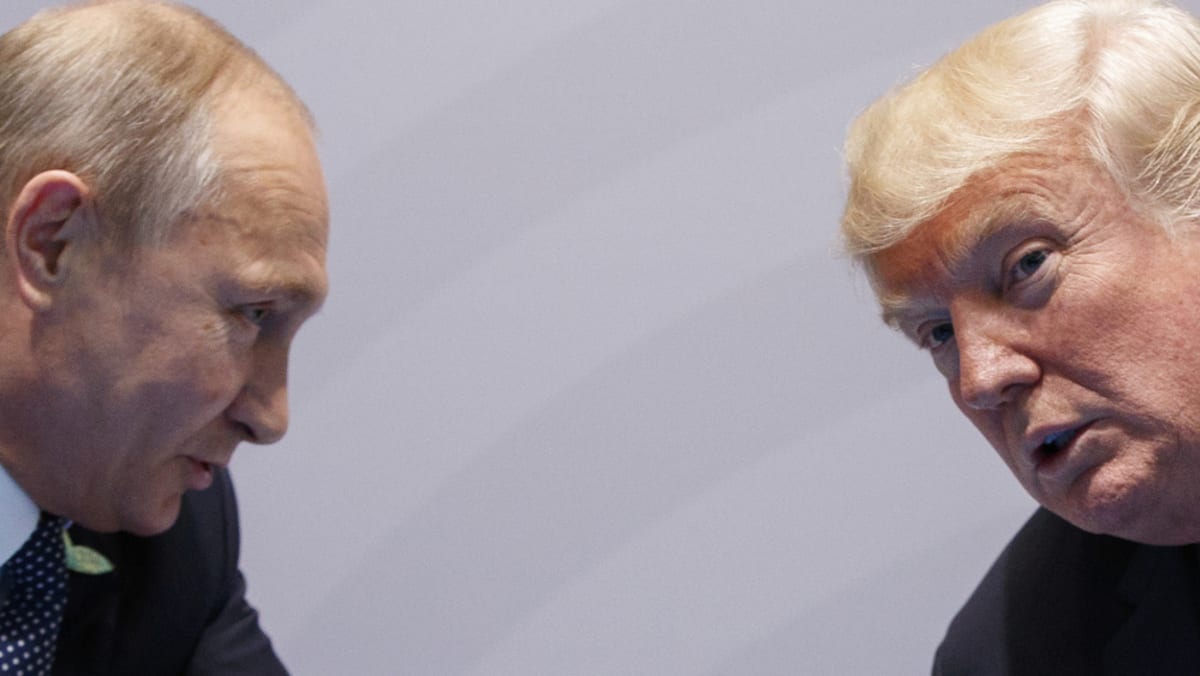






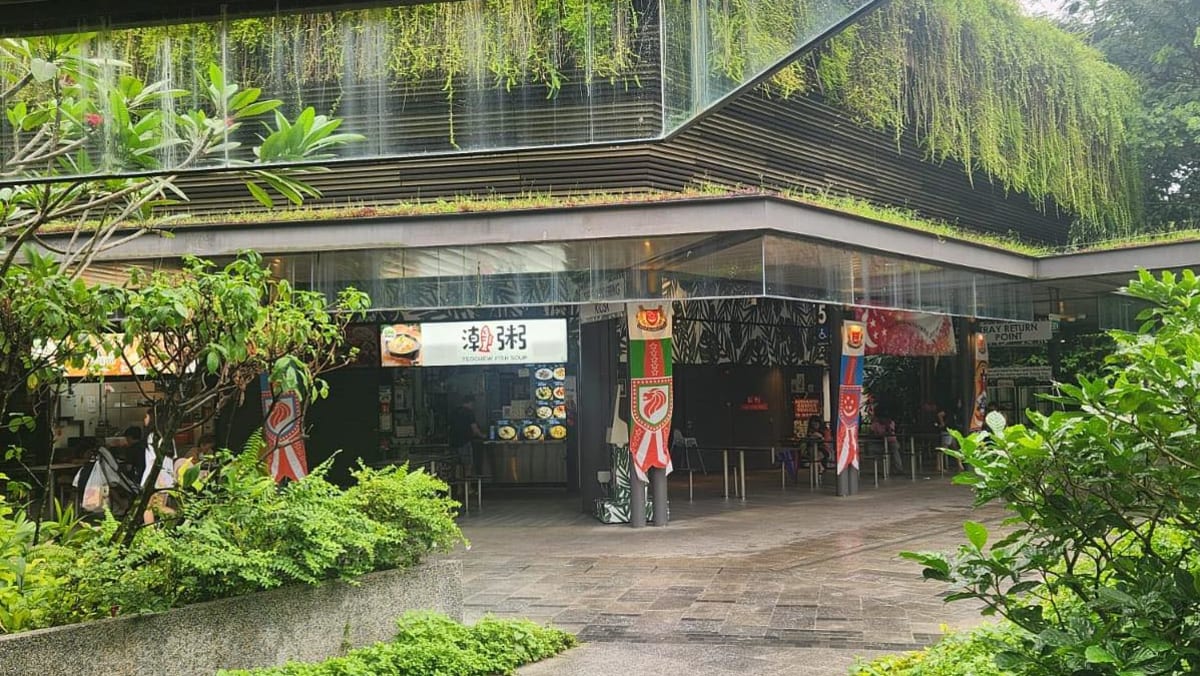























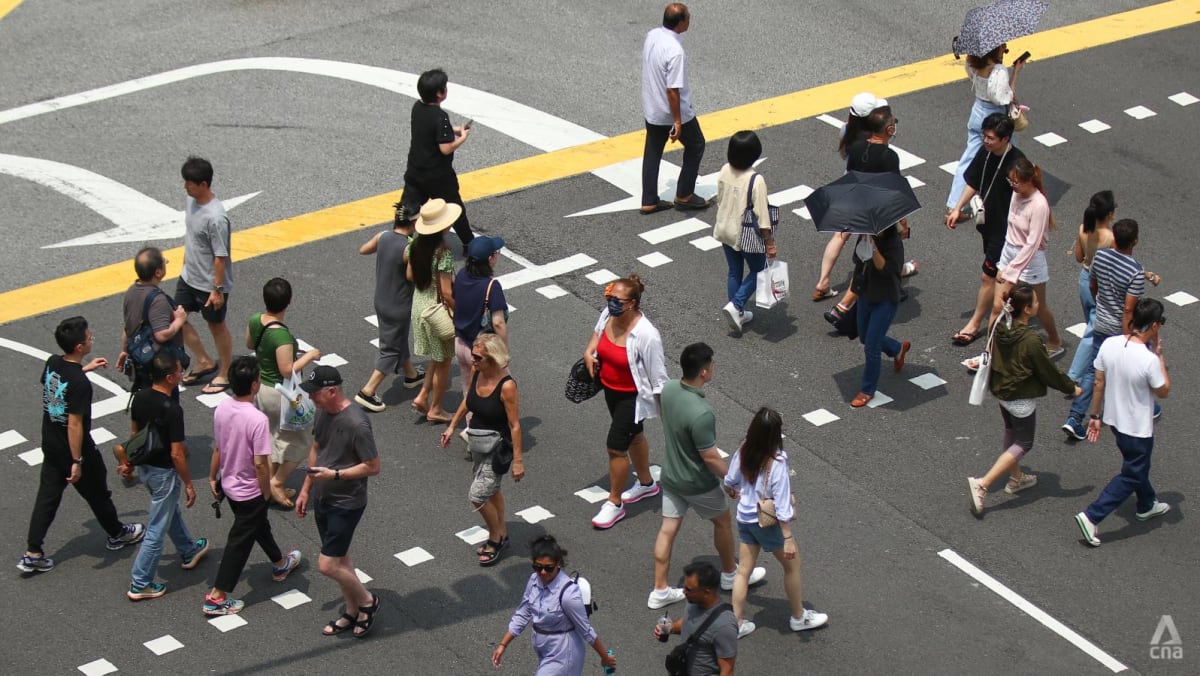










.png?itok=erLSagvf)
